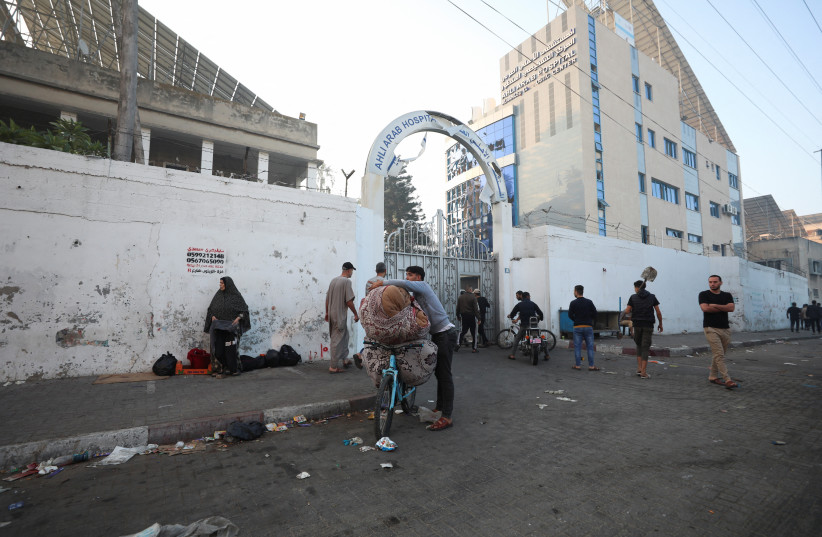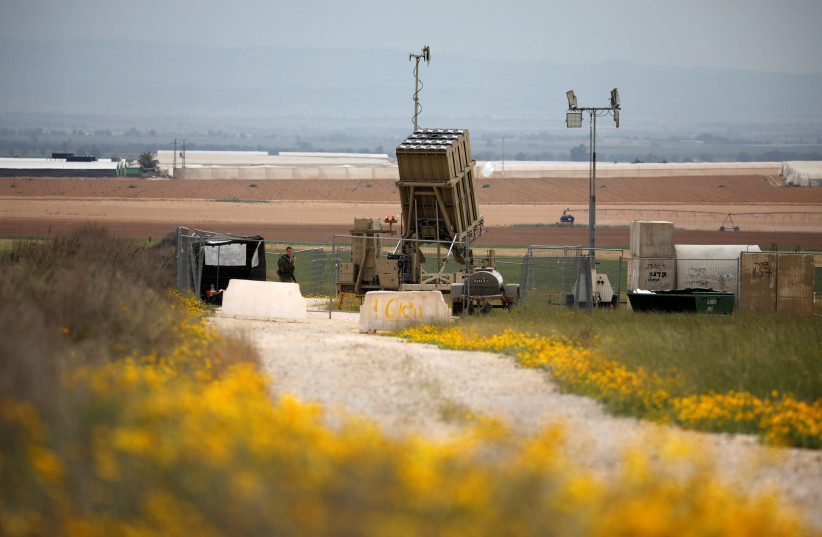How unique IDF radar saved Israel from false Gaza hospital attack libel
On October 17, Hamas falsely started to claim that Israel had attacked the Ahli Arab Hospital in Gaza City, leading to the killing of several hundred civilians.
Had this been true or ultimately been believed to be true, the US and the West might have prevented Israel from invading Gaza before the invasion could even start around a week later.
In the public view, the IDF Spokesperson’s Office released findings on the evening of October 17 and additional findings the next morning to prove that the attack came from a misfired Islamic Jihad rocket and not from Israel.
Additional intelligence also reduced the number of Gazan civilians who had been killed by the Islamic Jihad misfire.

But behind the scenes, the initial key findings were based on information obtained by the special radar of the IDF 611th Battalion of the 282nd Firepower Brigade, The Jerusalem Post has learned.
Generally, the radar is used to assist Iron Dome to tracking and shooting down rockets and to assist artillery to accurately hitting Hezbollah and Hamas forces, but in this case, the radar became a crucial element in maintaining the Jewish state’s legitimacy for self-defense, including its later counter-invasion of Gaza.
In movie-like fashion, upon hearing the fake news coming out of the incident, IDF Lt. Col. “B” ordered various staffers to remove a hard disk from the radar in the North and to travel around an hour as fast as possible to another location where the intelligence on the hard disk could be relayed directly to IDF Chief of Staff Lt. Gen. Herzi Halevi.
Retrieving the disk and transporting it to the right point as well as relaying the information in a period of less than two hours so that Halevi and the IDF spokesman’s office could get out in front of the attacked hospital story and call out Hamas’s lies was described by some IDF sources as a “real life James Bond mission.”
In a much shorter amount of time from the initial reports on October 17, only a matter of hours, IDF Chief Spokesman Daniel Hagari told the public that, “The IDF has concluded an after-action review and confirmed that the Islamic Jihad was responsible for the strike,” on the Gaza hospital.
“We did an immediate review for all relevant branches of the IDF,” he said.
Next, he said, “At 6:15 p.m., a barrage of rockets was fired by Hamas at Israel.”

At 6:50 p.m., a barrage of 10 rockets was fired by Islamic Jihad from a nearby cemetery, he said.
Further, at 6:59 p.m., there were reports of an explosion at the hospital.
Later on the morning of October 18, Hagari would also reveal a signals intelligence conversation intercepted between Gazan terrorists who were under extreme stress, having realized that they had, in fact, misfired and struck their own hospital.
This additional information, along with US President Joe Biden publicly endorsing Israel’s narrative, helped give Israel a rare public relations knock-out win to put the pressure for the story back on Hamas, leading even Human Rights Watch to later put out a report heavily hinting that the hospital attack had been a Gaza terrorist misfire.
But part of what was so critical was that the IDF had already reframed the story emerging from Hamas in Gaza as false in the early hours, preventing that false narrative from having enough time to take hold (which often happens when Israel responds more slowly.)
It was the special radar and quick delivery of the information by Battalion 611 which made this turnaround possible, which in the end had vast geopolitical consequences as if it left Israel free to be still able to launch its invasion of Gaza a week later.
According to Israel Aerospace Industries’ publications, the ELM-2084 is a mobile S-Band Multi-MissionRadar(MMR) Family featuring an advanced 3D Active Electronically Steered Array (AESA) for Air Defense and Artillery Weapon Location (WLR) Missions.
In the Air Defense mode, the radar detects and classifies all types of airborne targets and generates a real-time Air Situation Picture (ASP).
The Artillery mode detects incoming mortars, artillery shells, and missiles, notes IAI, providing hostile weapon firing locations as well as real-time calculation of impact point and friendly fire ranging.
Some of these functions were likely critical during the October 17 incident.
In addition, the Fire Control Radar (FCR) functionality enables control via uplink to anti-missile interception systems and Surface-to-Air(SAM) missile systems, according to IAI.





Comments are closed.